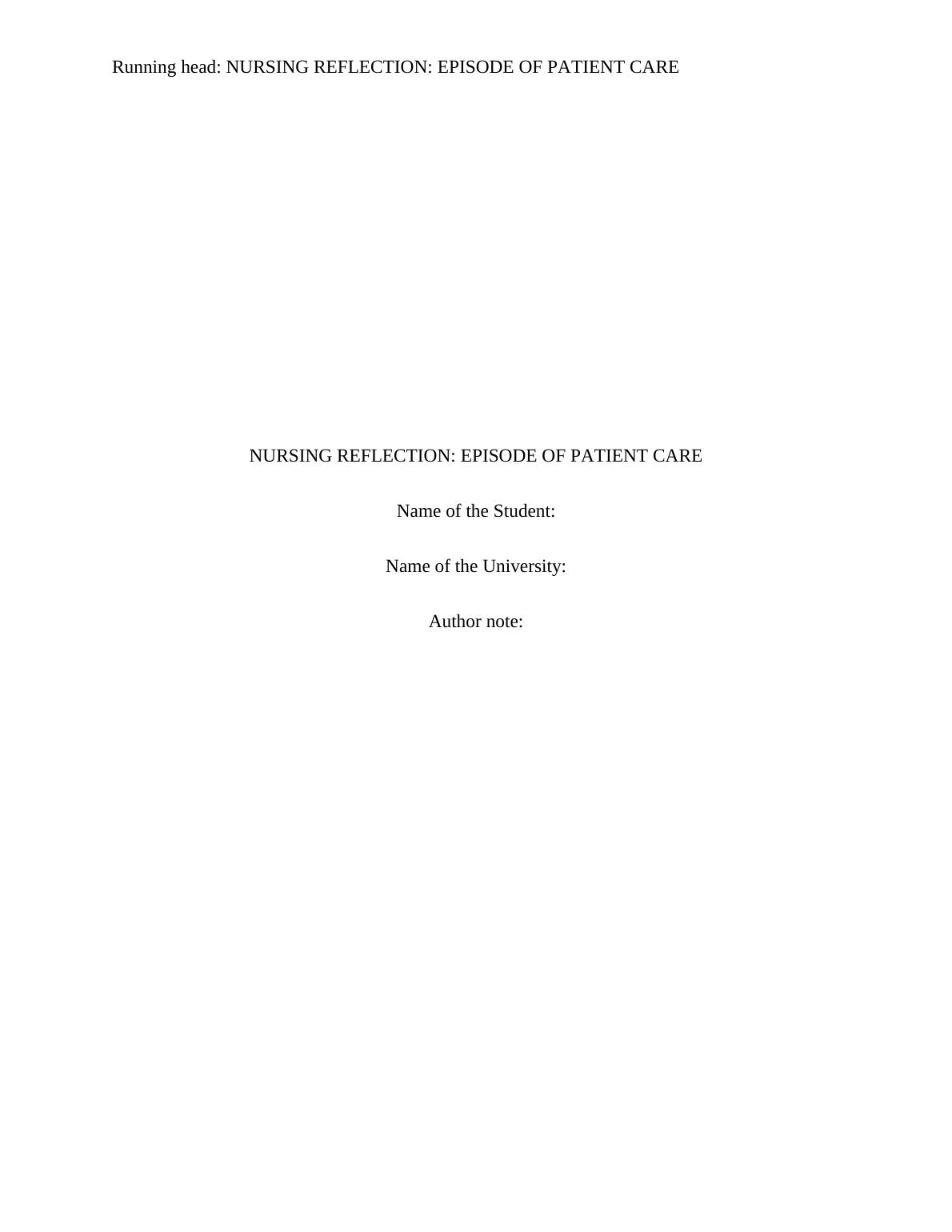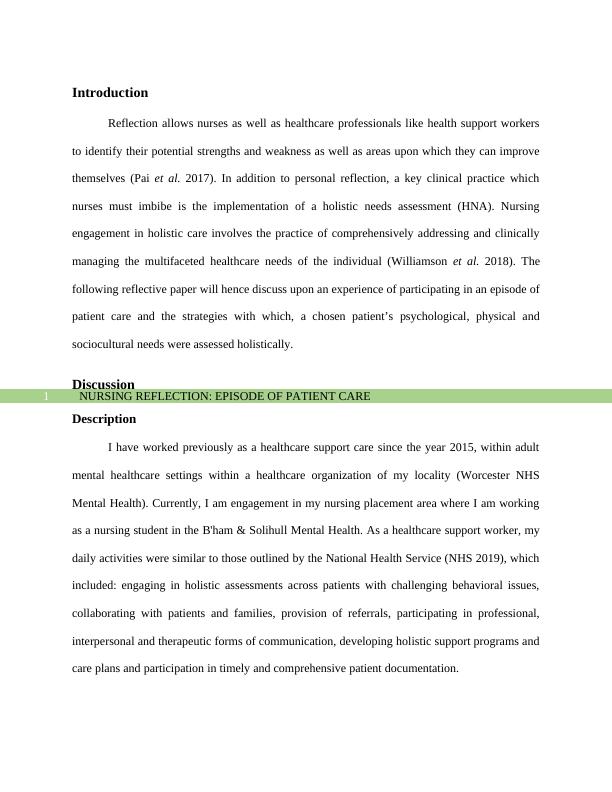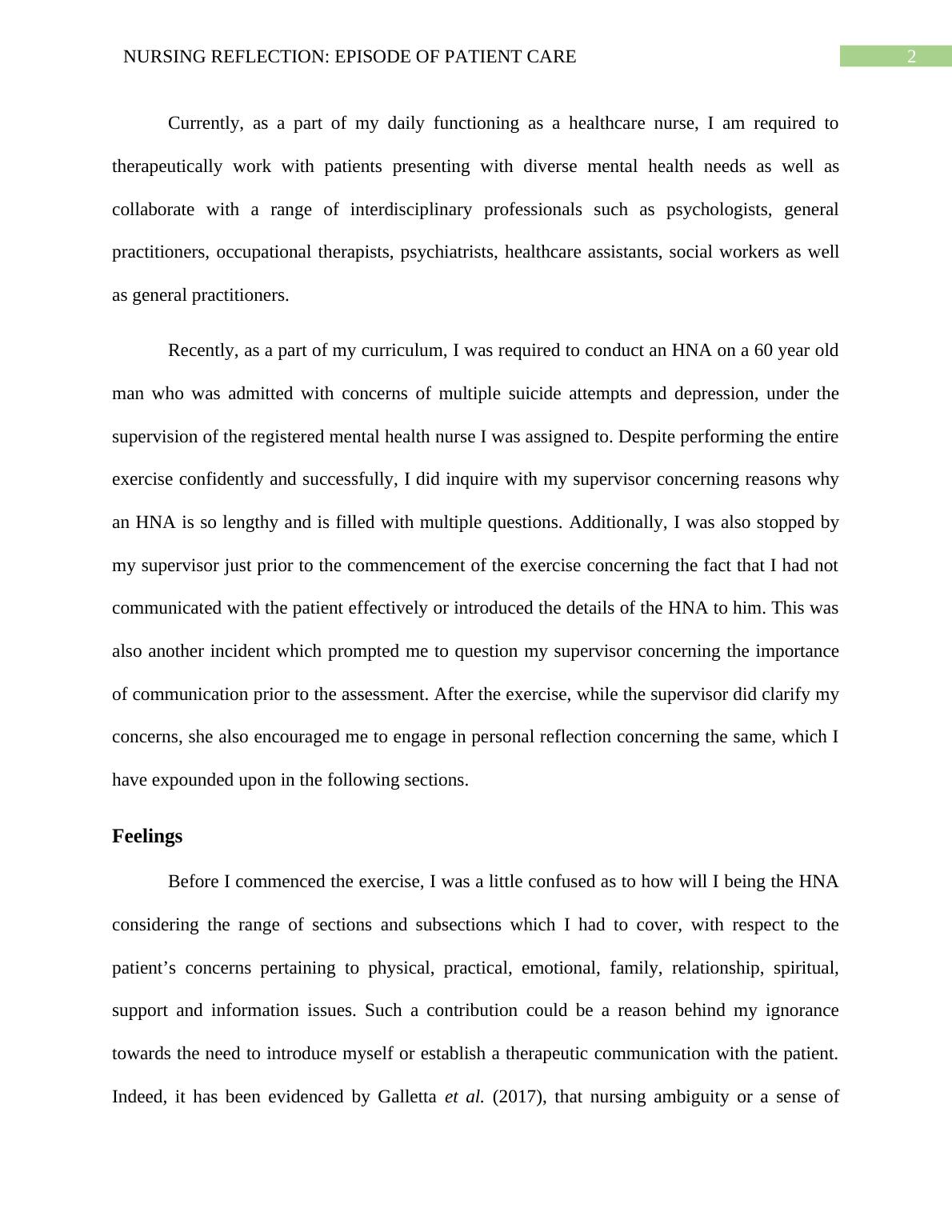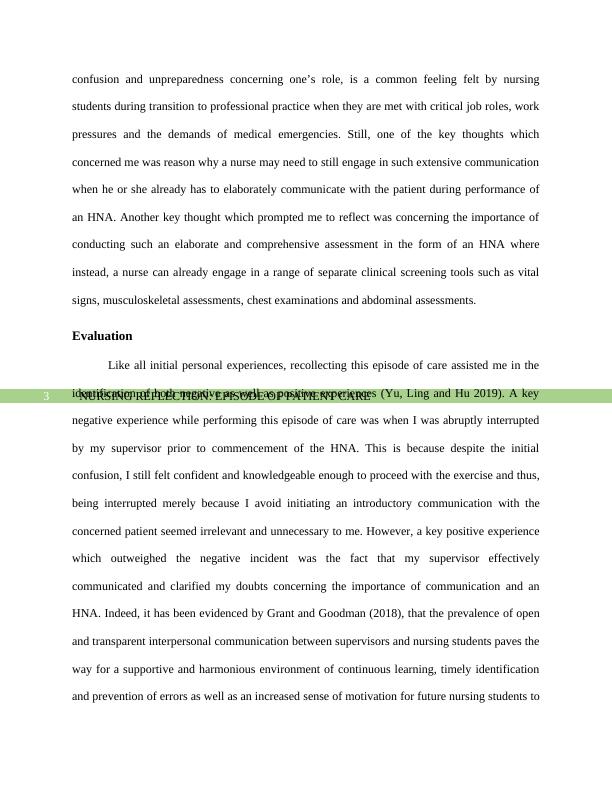Ask a question from expert
Nursing Reflection: Episode of Patient Care
Write a reflective account of an episode of care, demonstrating knowledge of commonly encountered presentations and applying a holistic nursing assessment approach.
12 Pages3166 Words305 Views
Added on 2022-08-25
Nursing Reflection: Episode of Patient Care
Write a reflective account of an episode of care, demonstrating knowledge of commonly encountered presentations and applying a holistic nursing assessment approach.
Added on 2022-08-25
BookmarkShareRelated Documents
End of preview
Want to access all the pages? Upload your documents or become a member.
Mental Health Nursing: Personal Statement and External Evidence
|11
|3660
|294
Action plan for case study PDF
|11
|2245
|276
Action Plan for Case Study - Improving Communication Skills for Mental Health Nursing
|11
|2329
|81
Nursing Essay on Mental Health Act 2014 and Patient-Centered Care
|6
|1414
|59
Gibbs Reflective Model for Registered Nurse in NHS
|7
|1247
|44
Advanced Practice Nursing Philosophy
|8
|1379
|399



